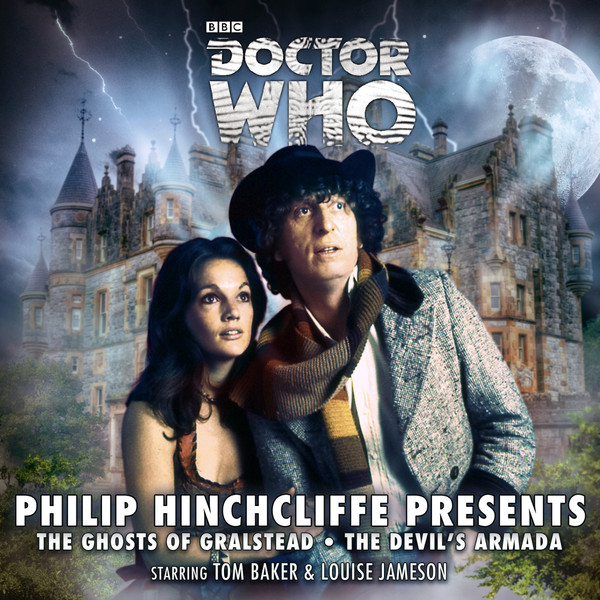Golden ages are very hard to define. They’re very personal and sometimes objects of contention. And knowing what a passionate lot us Doctor Who fans are, it is very difficult to define a “golden age”, but as a rule of thumb it’s usually the one that was on when you were a child. It doesn’t just encompass the television era, but also your life stage – extraneous things like family, friends, job, music, nights out all form part of the zeitgeist of a golden age.
Take me for example, I have three golden ages of Doctor Who – in reverse order they are 3. The Russell T Davies era, just what the Doctor ordered, it coincided with being totally in love, becoming a parent, having a wonderful circle of friends, moving house, changing career and becoming politically active. 2. Season 25 and 26 – I was an A Level student and finally felt Doctor Who was being made for me and for my generation – it was deep, gutsy and morally ambiguous. Which brings me on to 1. The Tom Baker era, or as I like to call it: “my childhood”. One of my earliest ever memories of anything is the cliffhanger for episode two of Robot – over the next few years the original mad man with a box became my friend – I lived for Doctor Who, even running away from a friend’s birthday party to watch episode two of City of Death. My childhood ended on 21 March 1981 when Tom regenerated and the world seemed a colder and less friendly place. But what memories – and none more vivid than the ones I have of Pyramids of a Mars, Talons of Weng-Chiang and Robots of Death. My little nine year old self had no idea of producers, but those half remembered childhood viewings were all from the era of Philip Hinchcliffe, and this dear reader brings my nicely on to Philip Hinchcliffe Presents.
This box set gives us two new stories for the Fourth Doctor and Leela. Both written by Philip Hinchcliffe and adapted for audio by Marc Platt.
The first of these is “The Ghosts of Gralstead” a six part story – of all the alien planets and strange civilisations the Doctor has visited, none are more alien and dangerous than Victorian London. This is where the Doctor and Leela find themselves, drawn into a world of freak shows, faith healers, body snatchers and the Scrivener family, a family with a secret. This story beautifully captures the essence of season 14, Tom is a more alien, more grumpy and much less flippant character than the wise cracking loon he was to become later on and is not one to suffer fools at all. He has a commanding presence that dominates every scene he is in, while Louise Jameson delights as always. She is just the most talented actress and a joy to listen to, every syllable she utters seems considered for maximum impact.
The story is really horrific, just the sort of thing Messers Hinchcliffe and Holmes delighted in serving up in their hey day, lots of death, destruction and a very black humour. Carolyn Seymour gives a chilling performance as Mordrega, the villain of the piece manipulating the weak willed Professor Scrivener, using his vanity and ambition against him, happily submitting to being a sort of “elephant woman” to achieve her aims. It’s all good stuff with twists and turns in every episode although it is maybe an episode too long with episode five seeming like padding. A strong story and completely evocative of the era 9/10.
The second story in the set is “The Devil’s Armada”, a four part story. Again this is set in England’s past, this time in the Elizabethan era. An England of paranoia about witches and goblins and spaniards and Catholics. The Doctor and Leela find themselves caught up in this intrigue getting accused of witch craft, spying and heresy and I would have been happy had thus been a pure historical about witch trials and the Spanish Armada, but it includes a monster called Vituperon. He looks like the Devil, can only be seen by those “gifted” and has a plan to take over the earth. It’s a shame as I found the inclusion of a monster the weak link in this story. There was enough content in the drama of the Elizabethan era, the intrigues and plotting of court and the sea battles, adding a monster seemed a bit obligatory. That’s not to say its a bad story, anything but! It zips along from crisis to crisis as events overtake our heroes. Tom gives a rousing speech to the privy council at one point which made me laugh and cheer in almost equal measure. If this was in a season it would be the inoffensive story that nobody dislikes but never really rated as a classic. 7/10.
So a great box set, really evocative of the era it represents, not a pastiche but a genuine continuation of a golden age written by one if the architects of that age 9/10.

No comments:
Post a Comment